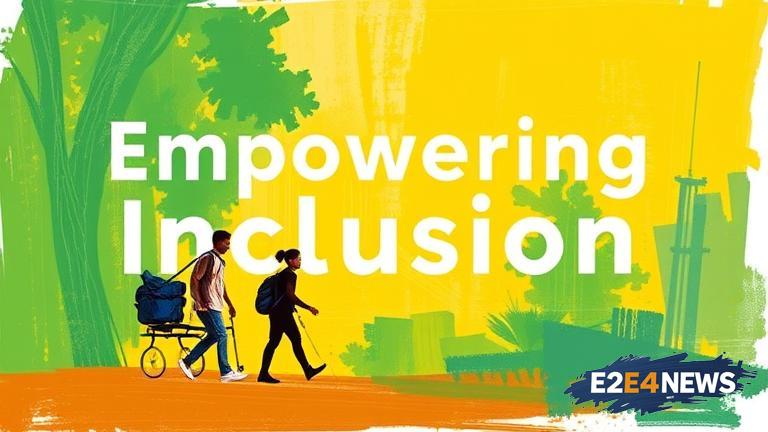The Americans with Disabilities Act, enacted in 1990, has been a groundbreaking legislation that has revolutionized the way communities approach accessibility and inclusivity. Over the years, the ADA has continued to evolve, with significant updates and amendments aimed at promoting equal opportunities for individuals with disabilities. In Idaho, the impact of the ADA has been particularly notable, with communities across the state working to create more accessible and inclusive environments. From wheelchair-accessible sidewalks and public buildings to accessible transportation and communication systems, the ADA has been instrumental in breaking down barriers and promoting social inclusion. The ADA has also had a profound impact on the workforce, with employers now required to provide reasonable accommodations for employees with disabilities. This has led to a significant increase in employment opportunities for individuals with disabilities, enabling them to contribute to their communities and live independently. Furthermore, the ADA has played a crucial role in promoting accessible education, with schools and universities now required to provide accessible facilities and programs for students with disabilities. The ADA has also had a significant impact on the healthcare system, with medical facilities now required to provide accessible services and equipment for individuals with disabilities. In addition to these tangible benefits, the ADA has also helped to shift societal attitudes towards disability, promoting a culture of inclusion and acceptance. As a result, individuals with disabilities are now more empowered than ever to participate fully in their communities, pursue their goals and dreams, and live fulfilling lives. The ADA has also been instrumental in promoting accessible technology, with companies now required to provide accessible digital products and services. This has enabled individuals with disabilities to access a wide range of information and services, from online shopping and banking to social media and entertainment. In Idaho, community organizations and advocacy groups have been working tirelessly to promote the ADA and ensure that communities are accessible and inclusive. These efforts have included initiatives such as accessible housing, transportation, and employment programs, as well as advocacy and education campaigns aimed at promoting disability awareness and inclusion. The ADA has also had a significant impact on the tourism industry, with destinations now required to provide accessible facilities and services for visitors with disabilities. This has enabled individuals with disabilities to travel and explore new places, promoting social inclusion and economic growth. Overall, the Americans with Disabilities Act has been a transformative piece of legislation that has revolutionized communities and promoted inclusivity for individuals with disabilities. As we continue to move forward, it is essential that we build on the progress that has been made, promoting accessibility and inclusion in all aspects of life. By working together, we can create a more just and equitable society, where individuals with disabilities have equal opportunities to thrive and contribute. The ADA is a powerful reminder that inclusion is not just a moral imperative, but also a sound economic and social strategy. By promoting accessibility and inclusion, we can unlock the full potential of individuals with disabilities, driving innovation, growth, and prosperity. In conclusion, the Americans with Disabilities Act has been a game-changer for individuals with disabilities, promoting accessibility, inclusion, and equal opportunities. As we look to the future, it is essential that we continue to build on the progress that has been made, promoting a culture of inclusion and acceptance that values the contributions of all individuals, regardless of their abilities.
